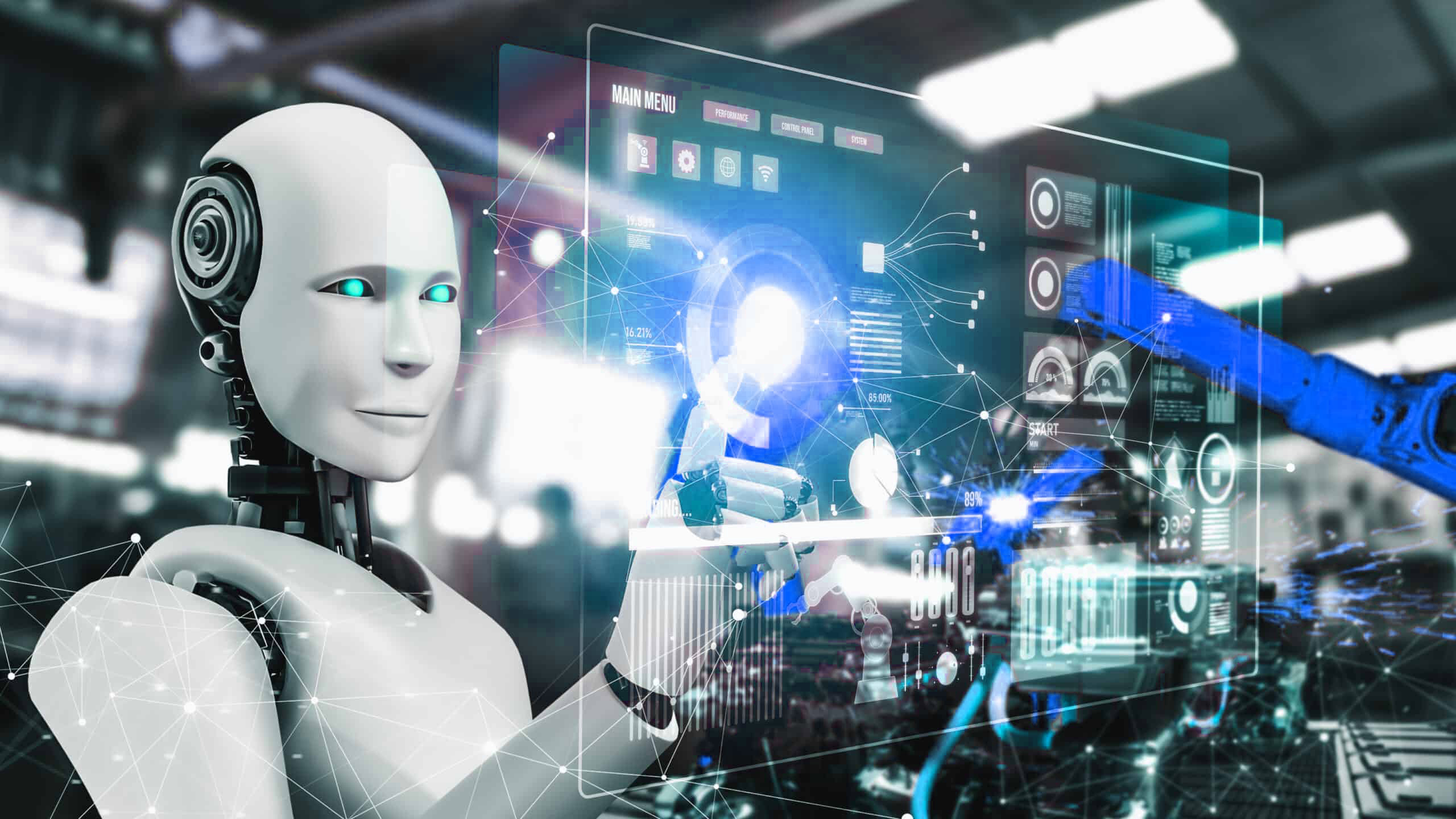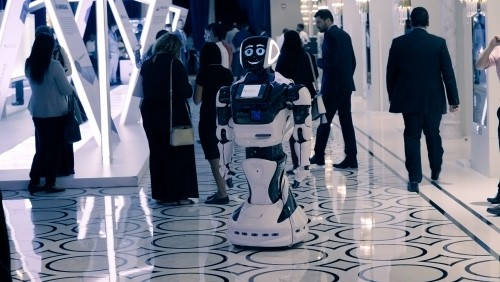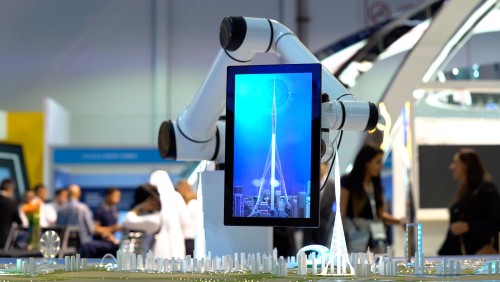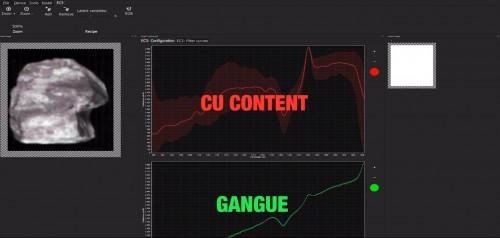Beyond the Hype: Unraveling the True Impact of Artificial Intelligence on Today's Job Market

Debunking Common AI Misconceptions
In the age of information and digital technology, Artificial Intelligence (AI) has become a popular buzzword. With its rapid development and widespread applications, it is not surprising that misconceptions about AI have emerged. To fully understand the true impact of AI on today's job market, it is essential to debunk these common myths and gain a more accurate perspective.
One of the most prevalent misconceptions is that AI is synonymous with robots or humanoid machines. While robotics and AI can overlap, AI refers to a much broader range of technologies and systems, including machine learning, natural language processing, and computer vision. These technologies enable machines to perform tasks that would typically require human intelligence, such as problem-solving, pattern recognition, and decision-making.
Another common myth is that AI is an imminent threat to human employment, rendering millions of jobs obsolete. While it is true that AI has the potential to displace certain jobs, it is crucial to recognize that AI technologies can also create new job opportunities and enhance existing roles by automating mundane tasks and improving efficiency. Furthermore, the widespread adoption of AI is expected to drive economic growth, which could generate demand for additional jobs.
Finally, people often assume that AI can fully replace human intelligence and judgment. While AI can perform specific tasks at an exceptional level, it is essential to remember that AI systems are designed and trained by humans. As such, these systems cannot wholly replicate human intuition, empathy, or creativity. Instead, AI should be seen as a tool that can complement and augment human capabilities rather than replace them.
How AI is Transforming the job market
Now that we better understand what AI is and what it isn't, let's explore how AI is transforming the job market. The impact of AI on employment can be observed in various ways, including job displacement, job creation, and shifts in the nature of work itself.
One of the most apparent effects of AI is the automation of routine and repetitive tasks. By leveraging machine learning algorithms and advanced data processing capabilities, AI systems can perform these tasks faster and more accurately than humans. As a result, workers who previously performed these tasks may find their roles disrupted or even eliminated. However, this automation can lead to increased productivity and efficiency, allowing businesses to grow and potentially create new job opportunities.
AI is also changing the skills required in the job market. As technology advances, there is a growing demand for professionals with expertise in AI, machine learning, data science, and other related fields. This demand has led to a skills gap, with many organizations struggling to find qualified candidates to fill these roles. Consequently, workers with AI and data-related skills are likely to enjoy increased job security and earning potential.
Moreover, AI is driving innovation and the development of entirely new industries. For example, AI-powered technologies such as autonomous vehicles, virtual assistants, and smart home devices have given rise to new markets and job opportunities. As these industries continue to grow and evolve, they will require a diverse workforce of engineers, designers, marketers, and other professionals to support their development.
AI-driven job growth in various industries
As AI technologies become increasingly integrated across industries, we can expect to see job growth in various fields. Here are a few examples of industries where AI-driven job growth is already evident or anticipated:
Healthcare: AI has the potential to revolutionize healthcare by improving diagnostics, treatment planning, and patient care. Medical professionals who are well-versed in AI technologies can leverage these tools to make more accurate diagnoses and develop personalized treatment plans. Additionally, AI-driven technologies such as telemedicine and remote patient monitoring can create new job opportunities for healthcare providers and technicians.
Finance: The financial industry has embraced AI to streamline operations, manage risk, and enhance customer service. AI-driven job growth in finance can be found in areas such as fraud detection, algorithmic trading, and financial analysis. Furthermore, the emergence of fintech startups and digital banking platforms is driving demand for professionals skilled in AI and data analysis.
Manufacturing: AI-powered automation is transforming the manufacturing industry, leading to increased productivity and efficiency. This shift has created new job opportunities in areas such as robotics, industrial automation, and predictive maintenance. Additionally, the adoption of AI technologies can stimulate growth in the manufacturing industry, leading to further job creation.
Retail and e-commerce: AI is reshaping the retail and e-commerce landscape, with applications ranging from personalized recommendations to inventory management. Job growth in this industry can be found in areas such as customer service, supply chain management, and data analysis, as businesses seek to leverage AI to enhance their operations and customer experiences.
These examples demonstrate that AI-driven job growth is not limited to the technology sector alone. As AI technologies continue to permeate various industries, professionals who can adapt and develop the necessary skills will likely benefit from increased job opportunities.
The impact of AI on job displacement and loss
While AI has the potential to create new jobs and drive economic growth, it is essential to acknowledge the potential for job displacement and loss. As AI technologies automate routine and repetitive tasks, workers in certain occupations may face the risk of losing their jobs.
Due to AI-driven automation, low-skilled and manual labour jobs, such as assembly line workers, data entry clerks, and customer service representatives, are at the highest risk of displacement. However, job displacement is not limited to low-skilled roles. AI has the potential to disrupt white-collar professions, such as financial analysts, legal professionals, and even medical specialists, as AI systems become increasingly adept at performing complex tasks.
The impact of AI on job displacement is not uniformly distributed across industries or geographies. Regions with higher concentrations of manufacturing and low-skilled jobs are likely to be more heavily affected by AI-driven job displacement. Similarly, industries that are more susceptible to automation, such as manufacturing, retail, and transportation, may experience higher levels of job loss.
It is crucial that policymakers, businesses, and educational institutions work together to address the challenges posed by AI-driven job displacement. This may include investing in workforce retraining programs, promoting lifelong learning, and fostering the development of new industries to create alternative job opportunities.
The role of AI in creating new job opportunities
While AI may displace certain jobs, it also has the potential to create new job opportunities – both directly and indirectly. Direct job creation occurs when AI technologies drive the development of new industries or roles, such as AI engineers, data scientists, and machine learning specialists. Indirect job creation occurs when AI-driven productivity gains lead to economic growth and increased demand for goods and services, creating additional job opportunities.
AI can also enhance existing jobs by automating mundane tasks and enabling workers to focus on more strategic or creative aspects of their roles. For example, AI-powered tools can help sales and marketing professionals analyze customer data, streamline workflows, and personalize customer experiences, leading to increased efficiency and potentially higher revenue. In healthcare, AI can help doctors and nurses make more accurate diagnoses and treatment plans, allowing them to spend more time providing personalized care to patients. Furthermore, AI can create new job opportunities in areas such as data analysis, programming, and technology support, as businesses and organizations seek to adopt and integrate AI technologies.
It is important to note that the extent to which AI creates new job opportunities depends on factors such as industry growth, economic conditions, and technological development. While AI has the potential to create new jobs, it is not a panacea for all job market challenges, and long-term job creation will require a multifaceted approach that addresses broader economic and social issues.
AI and the future of work: predictions and trends
As we look to the future, it is clear that AI will continue to shape the job market and the nature of work. Here are some predictions and trends to watch out for:
Increased demand for AI skills: As AI technologies become more prevalent across industries, there will be a growing demand for professionals with AI and data-related skills. This demand will likely lead to increased job security and higher salaries for individuals with these skills.
Automation of routine tasks: Automation of routine and repetitive tasks will likely continue to accelerate, leading to job displacement in certain industries and roles. However, this automation can also lead to increased productivity and efficiency, potentially creating new job opportunities.
Shifts in job roles and responsibilities: AI can enable workers to focus on more strategic or creative aspects of their roles, leading to a shift in the nature of work. This shift may require workers to develop new skills and adapt to new job requirements.
The emergence of new industries: AI-powered technologies are creating new industries and markets, leading to new job opportunities and economic growth. As these industries evolve, they will require a diverse workforce of professionals skilled in AI, data analysis, and related fields.
Collaboration between humans and machines: The future of work will likely involve increased collaboration between humans and machines, with AI systems supporting and augmenting human capabilities. This collaboration will require workers to develop new skills and adapt to new technologies.
Conclusion
In conclusion, the impact of Artificial Intelligence on the job market is a complex and multifaceted phenomenon, requiring a nuanced understanding to effectively navigate and adapt to the changing landscape. While AI has the potential to create new job opportunities and drive economic growth, it also poses challenges such as job displacement and shifts in the nature of work. It is essential that policymakers, businesses, and educational institutions work together to address these challenges and promote equitable and sustainable job growth. As AI technologies continue to advance and permeate various industries, workers who can adapt and develop the necessary skills will likely benefit from increased job opportunities and job security.







 Call
Call
 Mail
Mail